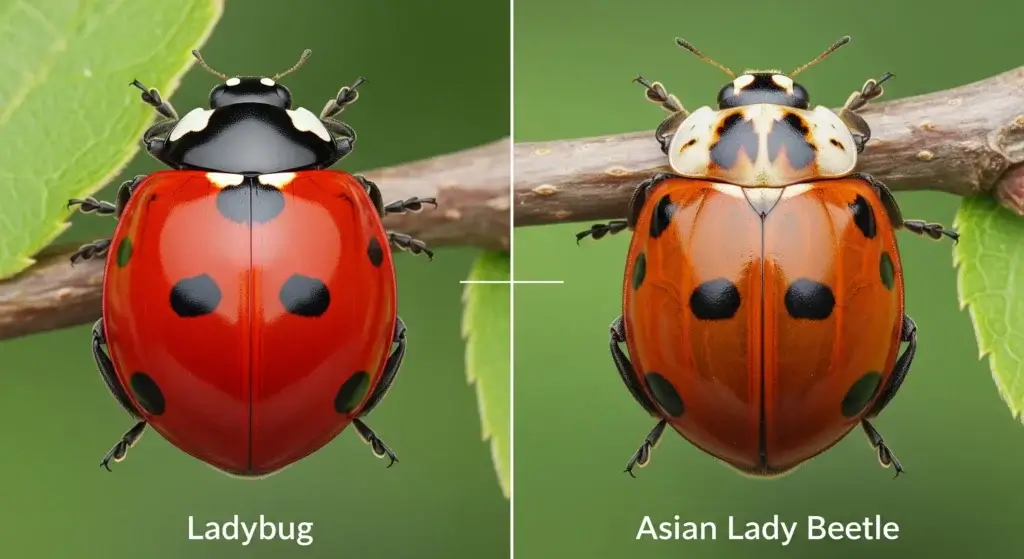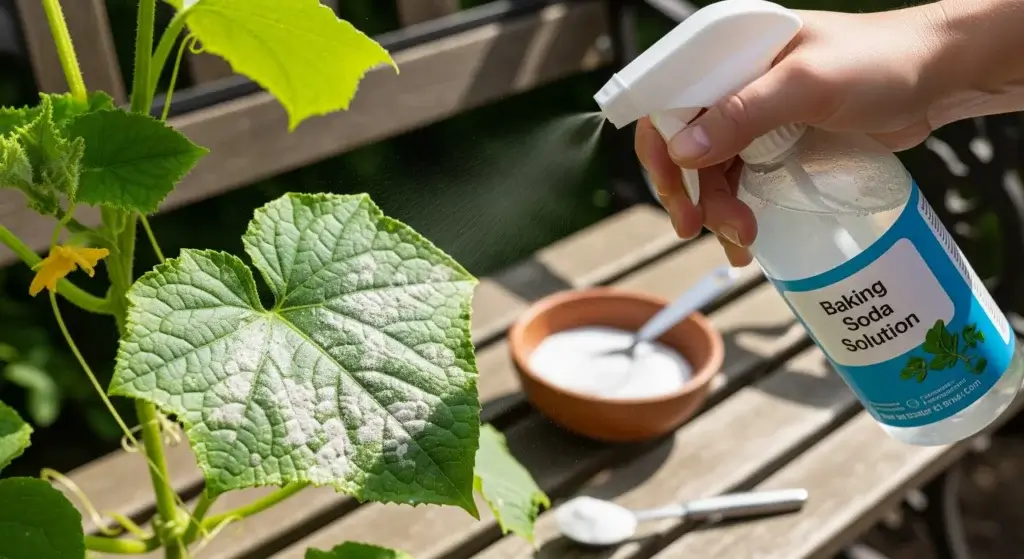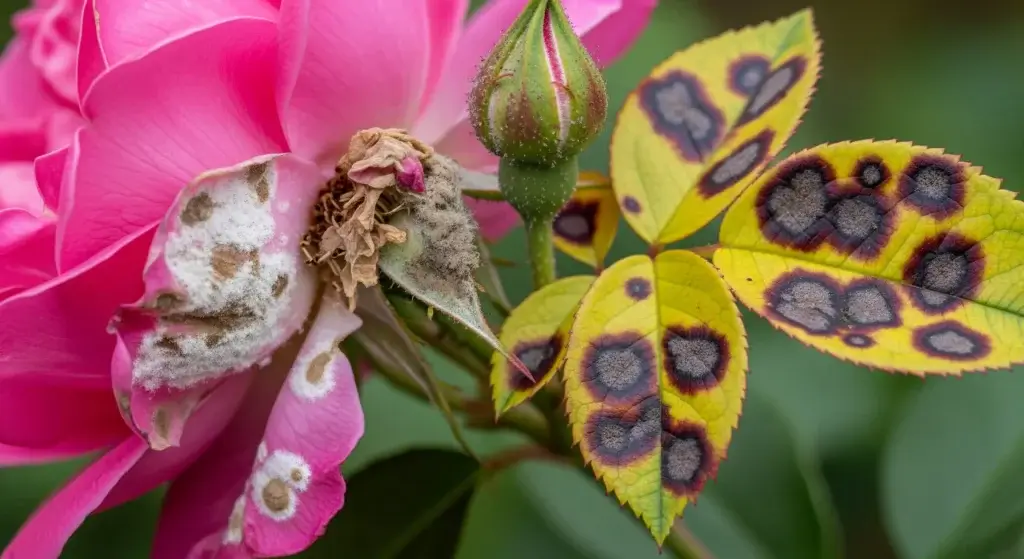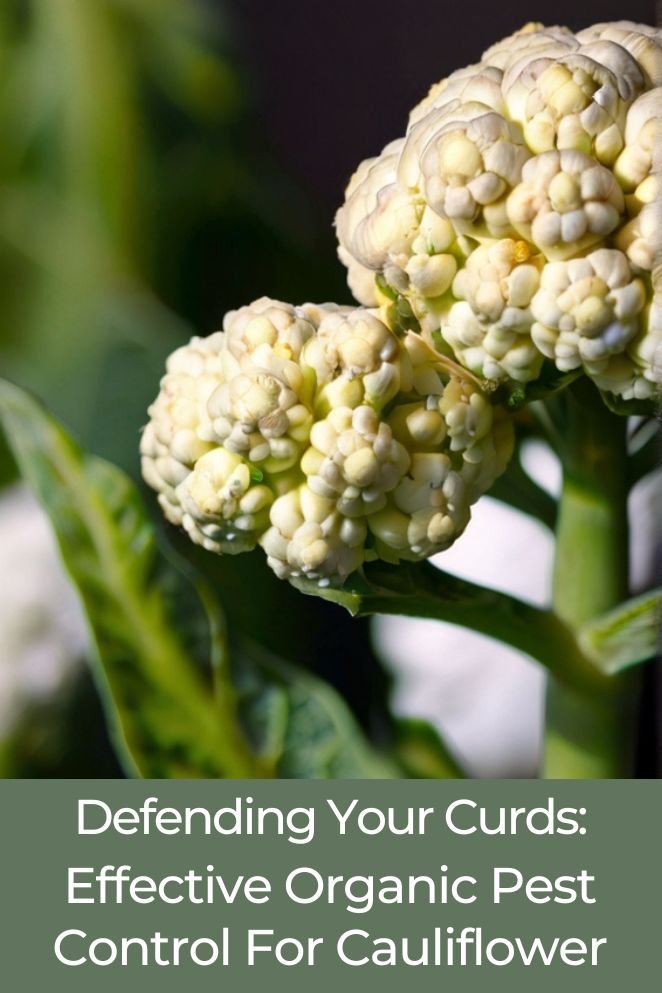
Cauliflower, a beloved vegetable cherished for its nutritional value and delightful taste, is a staple in cuisines worldwide.
However, like all crops, it faces challenges from pests that can wreak havoc on the harvest.
In this article, we’ll delve into the common pests that target cauliflower, explore organic pest control techniques, and discuss preventative measures to safeguard your cauliflower plants and maintain a healthy, pest-free crop.
Common Cauliflower Pests
Cauliflower plants, while resilient, are vulnerable to various pests that can threaten their health and productivity.
Let’s delve into the common pests that afflict cauliflower and the damage they cause:
Cabbage loopers
These voracious caterpillars are notorious for feasting on the leaves and stems of cauliflower plants.
Their chewing action can cause significant damage, leading to ragged foliage and stunted growth.
If left unchecked, cabbage loopers can decimate entire cauliflower crops.
Aphids
These tiny insects may seem harmless, but they can wreak havoc on cauliflower plants by feeding on their sap.
Aphids often congregate on the undersides of leaves, sucking out vital nutrients and causing leaves to curl and turn yellow.
A severe aphid infestation can weaken cauliflower plants and hinder their ability to produce healthy heads.
Cutworms
These nocturnal pests pose a threat to young cauliflower plants, as they feed on the stems near the soil surface.
Cutworms have a penchant for severing plant stems, causing young seedlings to wilt and ultimately die.
Their destructive behavior can result in significant losses for cauliflower growers if not promptly addressed.
Flea beetles
These pesky beetles are named for their flea-like jumping ability and their penchant for feeding on the leaves and stems of cauliflower plants.
Flea beetles create tiny holes in the foliage, leading to a ragged appearance and compromising the plant’s overall health.
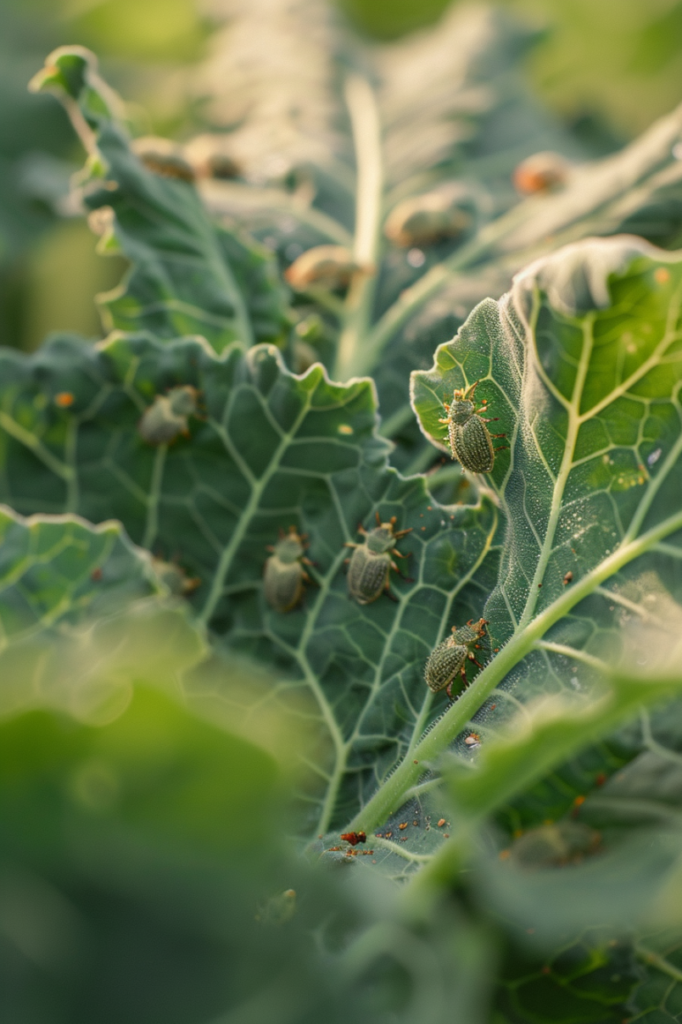
Organic Pest Control Methods
Preventative measures
To safeguard your cauliflower plants from pests and ensure a healthy crop, implementing preventative measures is essential.
Here are some effective strategies to consider:
Row covers and netting
Utilizing row covers or netting can provide a physical barrier to protect young cauliflower plants from pests.
These covers act as a shield, preventing insects like cabbage loopers and flea beetles from accessing the plants and causing damage.
By covering your plants early in the season, you can create a protective environment that promotes healthy growth and minimizes the risk of pest infestations.
Companion planting
Embracing the concept of companion planting involves strategically placing cauliflower alongside other plants that possess natural pest-repelling properties.
For instance, marigolds emit a scent that deters pests like aphids and nematodes, while onions can repel cabbage worms and other insect pests.
Maintaining good garden hygiene
Practicing good garden hygiene is crucial for preventing pest infestations and maintaining a healthy growing environment.
Regularly remove debris, fallen leaves, and dead plants from the garden, as these can provide hiding spots and breeding grounds for pests.
Encouraging beneficial insects
Beneficial insects play a vital role in controlling pest populations and maintaining ecological balance in the garden.
By creating an environment that attracts beneficial insects like ladybugs, lacewings, and parasitic wasps, you can naturally regulate pest populations without resorting to chemical interventions.
Natural insecticides
When faced with pest infestations in your cauliflower garden, turning to natural insecticides can offer effective control without the use of harmful chemicals.
Here are some commonly used natural insecticides and their applications:
Neem oil spray
Neem oil, derived from the seeds of the neem tree, is a versatile natural insecticide renowned for its effectiveness against a wide range of pests.
When applied as a spray, neem oil acts as a deterrent and disrupts the feeding and reproductive cycles of pests like aphids, cabbage loopers, and whiteflies.
Insecticidal soap spray
Insecticidal soap is a gentle yet potent insecticide made from natural plant-based oils, such as soybean or coconut oil, combined with potassium salts of fatty acids.
This soap disrupts the cellular structure of soft-bodied pests like aphids, spider mites, and whiteflies upon contact, causing them to dehydrate and perish.
Bacillus thuringiensis (Bt) spray
Bacillus thuringiensis, or Bt, is a naturally occurring soil bacterium that produces proteins toxic to certain insect larvae, including caterpillars like cabbage loopers and tomato hornworms.
Bt spray targets the digestive systems of susceptible larvae, causing them to stop feeding and die within a few days of ingestion.
Hot pepper and garlic spray
Hot pepper and garlic spray is a homemade insecticide that harnesses the repellent properties of these pungent ingredients to deter pests like aphids, spider mites, and cabbage worms.
To make hot pepper and garlic spray, combine finely chopped hot peppers and garlic cloves with water and allow the mixture to steep overnight.
Physical controls
When it comes to controlling pests in your cauliflower garden, physical methods can be effective and environmentally friendly.
Here are two commonly used physical controls:
Handpicking pests
Regularly inspecting your cauliflower plants for pests and manually removing them by hand is a simple yet effective method of pest control.
This approach is particularly useful for larger pests like caterpillars, snails, and beetles that are easily visible on the plants.
Simply pluck the pests off the leaves and stems of your cauliflower plants and dispose of them away from the garden.
Diatomaceous earth dust
Diatomaceous earth is a natural product made from fossilized remains of diatoms, tiny aquatic organisms.
When applied as a dust, diatomaceous earth acts as a physical barrier to pests, causing abrasions on their exoskeletons and ultimately leading to dehydration and death.
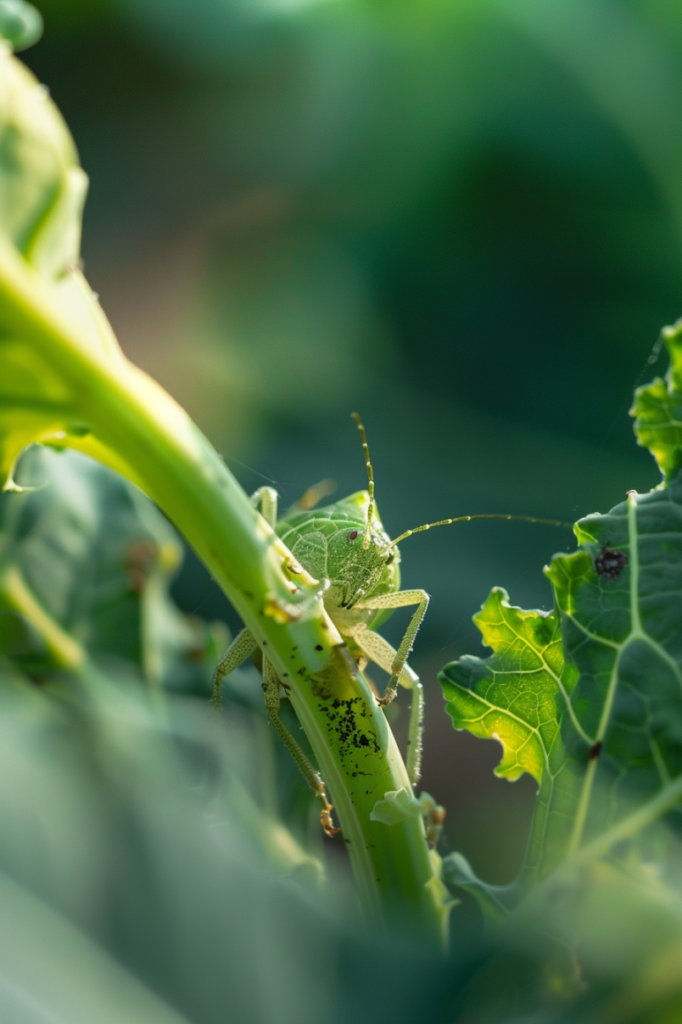
Benefits of Using Natural Insecticides
Utilizing natural insecticides for pest control in cauliflower gardens offers several advantages that make them a preferred choice for many growers.
Let’s explore the benefits of using natural insecticides in detail:
Environmentally friendly
Natural insecticides are derived from organic or plant-based sources, making them more environmentally friendly compared to synthetic pesticides.
They break down more easily in the environment, reducing the risk of contaminating soil, water, and air with harmful chemicals.
Selective action
Many natural insecticides, such as Bacillus thuringiensis (Bt), specifically target certain pests while sparing beneficial insects like pollinators and predators.
This selective action helps maintain ecological balance in the garden and minimizes the disruption to beneficial insect populations.
Rapid breakdown
Natural insecticides like neem oil and insecticidal soap break down quickly when exposed to heat, light, and water.
This rapid breakdown reduces the residual impact on the environment and minimizes the risk to non-target organisms, including humans and pets.
Low toxicity
Most natural insecticides have low to moderate acute mammalian toxicity, making them safer to handle and use compared to synthetic pesticides.
When used according to the manufacturer’s instructions, natural insecticides pose minimal risk to human health and the environment.
Multiple control options
Natural insecticides offer flexibility in pest management strategies.
They can be used alone or in combination with conventional pesticide programs, providing growers with multiple control options to address pest problems effectively.
Delay resistance
Rotating natural insecticides with conventional pesticides can help delay the onset of resistance in pest populations.
By alternating between different modes of action, growers can prevent pests from developing resistance to specific chemicals, prolonging the effectiveness of pest control measures.
Compatible with Integrated Pest Management (IPM)
Natural insecticides are compatible with Integrated Pest Management (IPM) practices, which emphasize the use of multiple control tactics to manage pests sustainably.
By integrating natural insecticides into an IPM program, growers can enhance pest control efficacy while minimizing reliance on chemical pesticides.
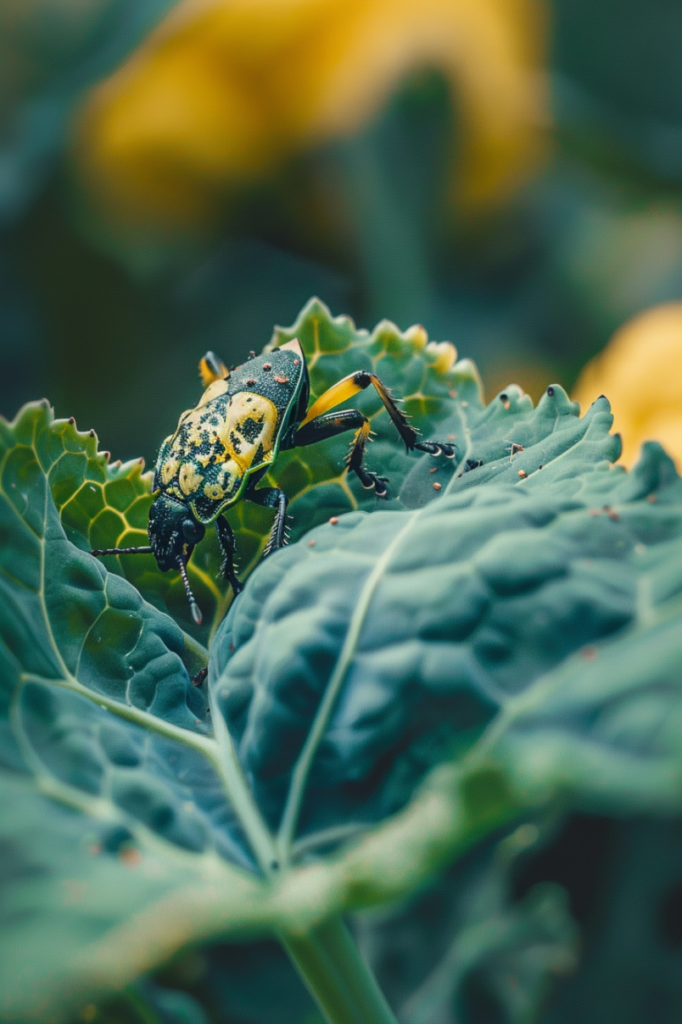
Conclusion
Employing organic pest control methods is highly effective in safeguarding cauliflower plants from common pests.
By combining preventative measures, natural insecticides, and physical controls, you can ensure the health and pest-free status of your cauliflower crop.
By integrating a variety of strategies, you can create a robust defense system against pests, promoting the well-being and productivity of your cauliflower plants.
FAQs
Organic pest control methods are essential for protecting cauliflower plants from common pests while minimizing the use of synthetic chemicals that can harm the environment and human health.
The common pests that affect cauliflower include cabbage loopers, aphids, cutworms, and flea beetles.
Preventative measures include using row covers and netting, companion planting, maintaining good garden hygiene, and encouraging beneficial insects.
Natural insecticides include neem oil spray, insecticidal soap spray, Bacillus thuringiensis (Bt) spray, and hot pepper and garlic spray.
Physical controls include handpicking pests and using diatomaceous earth dust.

